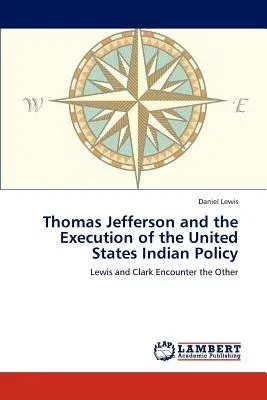Daniel Lewis
(Author)Thomas Jefferson and the Execution of the United States Indian PolicyPaperback, 15 September 2012

Qty
1
Turbo
Ships in 2 - 3 days
In Stock
Free Delivery
Cash on Delivery
15 Days
Free Returns
Secure Checkout
Print Length
136 pages
Language
English
Publisher
LAP Lambert Academic Publishing
Date Published
15 Sep 2012
ISBN-10
3659230219
ISBN-13
9783659230219
Description
Product Details
Author:
Book Format:
Paperback
Country of Origin:
US
Date Published:
15 September 2012
Dimensions:
22.86 x
15.24 x
0.81 cm
ISBN-10:
3659230219
ISBN-13:
9783659230219
Language:
English
Pages:
136
Publisher:
Weight:
208.65 gm

